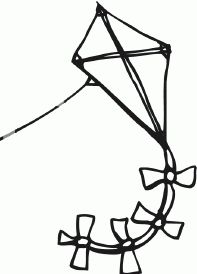Three Day Road
The Quill and Quire Review
Key Points
The narrative of a three-day canoe journey by two Cree Indians.
Named Xavier and Niska.
“Gradually Elijah becomes imprisoned by two great obsessions:
a need for morphine, whose use is rampant up and down the
lines, and an insatiable hunger for killing.”
“Subject to what modern medicine would call epileptic seizures,
Niska is deemed by her tribe to have inherited her father’s skills
as a shaman and a windigo-killer.”
“The real war hero, Peggy, makes a brief cameo appearance
in the novel, which may not have been a wise choice on the author’s part.”
Elements of P.O.E.M
Pragmatic
“Author Joseph Boyden, who is part native, has taken a sideways
step in dealing with the Peggy story. Instead of trying to fictionalize
a real hero – always a risky business – he has created a pair of
young Cree hunters whose experiences in the First World War
are loosely modelled on Pegahmagabow’s.”
“Xavier, the quieter of the two, barely speaks English and has
been raised according to traditional native beliefs and customs
by his semi-wild aunt Niska, in the bush near Moose Factory in
Northern Ontario.”
Objective
The reviewer mentioned the W5H of the book. He explained
the characterization quite well.
The reviewer summarized the whole plot of the book within
his review. He explained the beginning, middle and ending in
understandable detail.
Expressive
The reviewer went over the native culture and how it affected
the characters.
The reviewer expressed the troubles that came with Elijah's
morphine addiction.
Mimetic
The reviewer used real facts “One of Canada’s great unsung
heroes was Francis Pegahmagabow, an Ojibway from the
Parry Island (now Wasauksing) band who fought in the First
World War.”
The reviewer explains the real life affect that happened to
many native people as a result of World War One.
The Globe and Mail review
Key Points
The reviewer states, “It's gripping, wrenching, eye-opening,
illuminating, stirring, moral (not moralistic) fiction, rooted in
closely observed fact.”
The plot contains a lot of native culture and spiritual themes.
The story goes on to explain how World War One was able to
change their lives.
Elements of P.O.E.M
Pragmatic
The reviewer speaks on the Natives view on mystical and
spiritual beings inferring with the humans.
The reviewer explains the culture of “Fascinating to some readers,
no doubt repellent to others, all the noisy, brutal deaths of Three
Day Road are not only historically indispensable, they are
required as contrast to the quieter, cleaner, long-range, technically
precise kills that are Elijah's and Xavier's specialty as snipers in
their search for a glory that becomes progressively hallucinatory.”
Objective
The reviewer states many times that the book is very well written.
As he stated, “gripping, wrenching, eye-opening, illuminating,
stirring.”
The reviewer explained the whole story of the book.
Expressive
The reviewer relates the book to the truth about World War One
many times and the effects it had on the Natives. Such as
drug abuse.
The stories that are told in the book go over the themes that
are involved within the book.
Mimetic
The reviewer talked about how the book had factual events in
it, such as battles and wars, and the effect they played.
The trauma that many Native people went threw actually
did happen.












